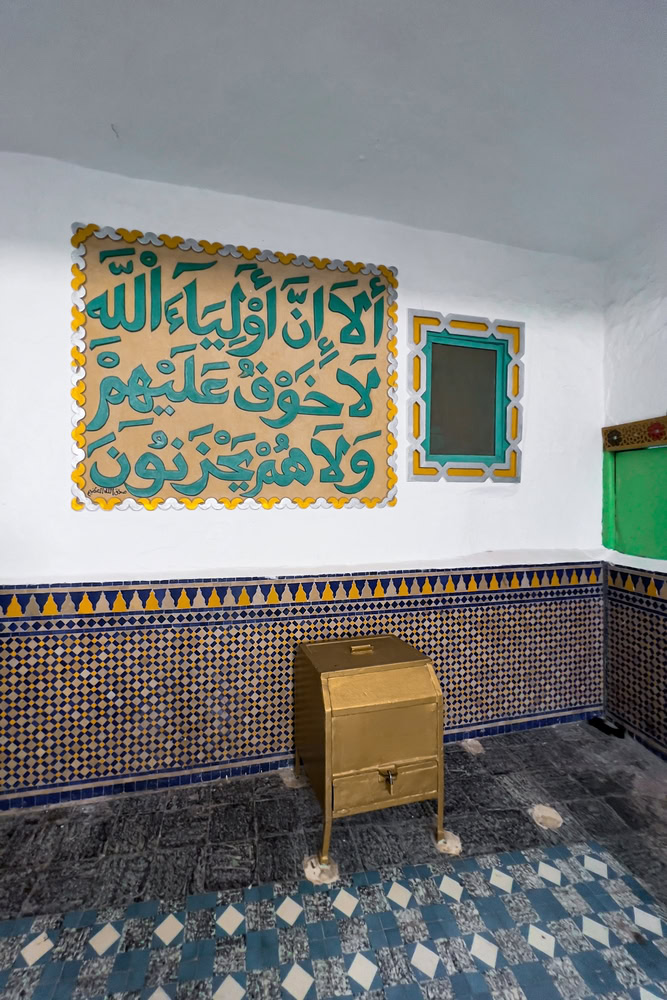Must a Cat Litter Box Be Removed from a Room with Quranic Verses on Display?
Answered by Shaykh Dr. Muhammad Abu Bakr Badhib
Question
Is it necessary to remove a cat litter box from a room that contains Quranic verses on display?
Answer
In the name of Allah, and all praise is due to Allah, and blessings and peace be upon our master Muhammad, the Messenger of Allah, his Family, his Companions, and those who follow him.
Raising cats in homes is widespread and permissible because cats are not impure, as evidenced by the hadith narrated by Kabsha bint Ka‘b Ibn Malik, who was married to Ibn Abi Qatada. She reported that Abu Qatada entered, and she poured water for him for wudu. A cat came and drank from it, and he tilted the vessel for it to drink. Kabsha said: “He saw me looking at him and asked, ‘Are you surprised, my niece?’ I said, ‘Yes.’ He said, ‘The Messenger of Allah (ِAllah bless him and give him peace) said: “They are not impure; they are among those who go around among you (like pets).”’” [Abu Dawud; Tirmidhi]
Indeed, cat excrement is impure and must be kept away from homes. No rational person would allow their home to be soiled with any filth, and this is indisputable.
Given this, protecting sacred items from impurities is a required aspect of Islamic etiquette. The Quranic verses and chapters that are displayed on the walls of some homes are placed there for blessings and reverence. It is not appropriate to neglect them or place them in neglected rooms or rooms designated for raising animals, as this does not reflect respect. Allah (Most High) says:
“And whoever honors the symbols of Allah, it is certainly out of the piety of the heart.” [Quran, 22:32]
Therefore, those who seek piety should honor what Allah has honored. We ask Allah for success in what He loves and is pleased with.
[Shaykh] Dr. Muhammad Abu Bakr Badhib
Shaykh Dr Muhammad Abu Bakr Badhib is a prominent Islamic scholar from Yemen born in Shibam, Hadhramaut, in 1976. He received his degree in Shari‘a from Al-Ahqaf University, a master’s degree from the Islamic University of Beirut, and a PhD in Usul al-Din from Aligarh Muslim University (AMU).
He studied under great scholars such as Shaykh al-Habib Ahmad Mashhur al-Haddad, Shaykh Fadl Ba‘ fadl, Habib Salim al-Shatiri, Habib Ali Mashhur bin Hafeez, and others. He has served as the Director of Publications at Dar al-Fiqh, the former Deputy Director of Cultural Relations at Al-Ahqaf University, a former Assistant for Employee Affairs at Atiyah Iron Company, a researcher at the Sunna Center affiliated with the Dallah al-Baraka Foundation, and a researcher at Al-Furqan Foundation’s Makka al-Mukarrama and Madina al-Munawwara Encyclopedia branch.
Currently, he is a researcher at Al-Furqan Foundation’s Makka al-Mukarrama and Madina al-Munawwara Encyclopedia branch, teaches traditionally through the Ijaza system at Dar al-Fuqaha in Turkey, supervises the Arabic department at Nur al-Huda International Institute (SeekersGuidance), and is a member of the Board of Trustees of the Manuscript House in Istanbul.
His works include “The Efforts of Hadhramaut Jurists in Serving the Shafi‘i School,” “Contributions of Hadhramaut Scholars in Spreading Islam and its Sciences in India,” “Hada’iq al-Na‘im in Shafi‘i Fiqh,” in addition to verifying several books in Fiqh, history, the art of biographies, and Asanid (chains of narration).
